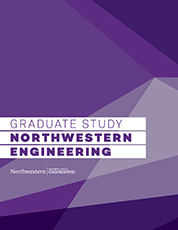The (Off) Road to Success
Jeremy Fu (EDI ‘22) relies on lessons learned in EDI to help design the features that turn Rivian electric vehicles into more than your average adventure truck.
When a Rivian electric vehicle reaches an adventure outpost, Jeremy Fu’s (‘20, EDI ‘22) work shines.
Fu is a mechanical design engineer at Rivian, the American electric vehicle manufacturer that started delivering its high-tech pickups and SUVs in September 2021. In his role, Fu and his colleagues design lifestyle accessories that turn each Rivian into more than a mere vehicle.
 Fu and his team helped design the flashlight that comes out of the Rivian’s door. He also was involved in creating the "Travel Kitchen," a portable cooking station built specifically for R1 vehicles.
Fu and his team helped design the flashlight that comes out of the Rivian’s door. He also was involved in creating the "Travel Kitchen," a portable cooking station built specifically for R1 vehicles.
“Every single product we work on is something new,” Fu said. “I really love the technical challenges that I get to solve as an engineer, but also the user needs that I get to solve as a designer.”
The lessons Fu learned as a student in Northwestern's Master of Science in Engineering Design Innovation (EDI) program are at the foundation of that work.
Fu started the EDI program immediately after graduating in 2020 from Northwestern, where he majored in mechanical engineering, as well as manufacturing and design engineering through the Segal Design Center. His EDI experience helped prepare him to succeed in his first post-graduation job.
“The breadth of projects we worked on enabled me to solve different kinds of problems and be more agile when presented with a new project,” Fu said. “Classes like Design Strategy and Designing Product Interactions helped me understand how to break down a problem, whether that's zooming out on what the overall business needs are or zooming in on a specific product interaction and how I want to make a user feel.”
That user-feeling focus is at the heart of Fu’s job with Rivian.
The company was founded in 2009 and has numerous high-profile backers, including Amazon, T. Rowe Price, and, most recently, Volkswagen, which in November announced a transaction agreement to create their new joint venture, “Rivian and VW Group Technology, LLC”. Since its inception, Rivian has been committed to designing off-road vehicles with minimal environmental impact.
That extends to the products Fu and his team are tasked with developing.
For example, the "Travel Kitchen" was designed as an induction cooktop to replace traditional gas cook stoves most common at campsites. Fu’s piece of the project was to incorporate a set of lights to enable campers to continue to cook into the night.
With campers fully fed, Fu’s focus turned to a safe space for them to sleep. He and his colleagues are working on a rooftop tent for Rivian’s upcoming vehicles.
“Before I started working on this project, I had never designed a tent before,” Fu said. “You get to tackle each problem with a fresh mind and learn a lot in order to create a product that people love.”
Fu is grateful to EDI, the program's faculty, and his classmates for the role they played in helping him grow as an engineer and designer. He returned to campus in September to share that appreciation with new EDI students as part of the program's Back to Camp(us) event. Fu was one of more than 35 alumni who interacted with the students during Camp EDI orientation.
His goal was to motivate the students to take advantage of their time in the program.
“I'm jealous they have a year and a half to immerse themselves in EDI’s studio environment,” he said. “I encouraged them to try new things and think outside the box with their designs. It's an incredibly supportive environment, and they should definitely make the most of the opportunity.”

